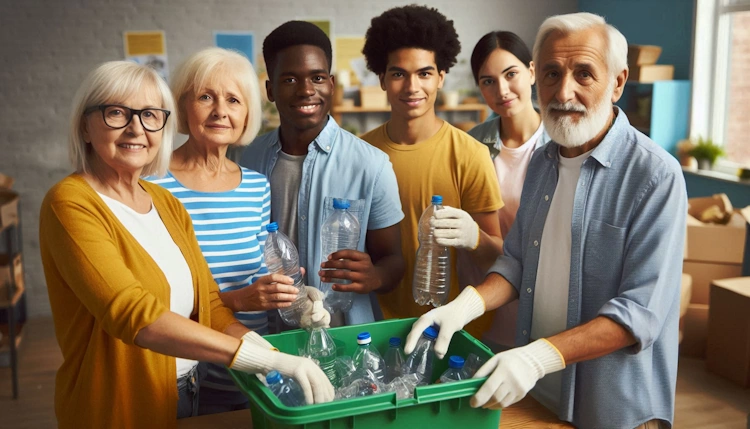
Waste prevention consists in reducing the amount of waste produced or its dangerousness. It concerns the production and consumption phases. Prevention is a fundamental approach to preserving natural resources in Tennessee.
According to waste experts at Same Day Dumpster Rental Chattanooga, it also aims to limit pollution caused to the environment by the stages of production, processing, transport and use of products, and by the treatment of waste at the end of its life.
Reducing the amount of waste produced also saves on collection and treatment costs. This approach is part of the national fight to reduce waste and is a major tool to support changes in the behavior of residents.
Fight against food waste
A resident of Tennessee wastes an average of 50 kg of food products per year in their home, including 13 kg of unconsumed products still packaged. Added to this is the waste generated in collective or commercial catering.
The challenges of food waste
Reducing food waste addresses three challenges:
- Environmental: if food waste were a country, it would be the third largest polluter, just after China and the United States. Wasting food means using natural resources and unnecessarily emitting greenhouse gases during the production, processing, conservation, packaging and transport phases.
- Economic: food waste generates waste treatment costs that could be avoided if the products were not thrown away. It costs an average of $195 per person per year for every household in Tennessee.
- Ethical and social: food waste is all the more unacceptable when we know that in Tennessee 1 in 10 people have difficulty feeding themselves.
Solutions to avoid waste
Consumers have several tools to reduce the amount of wasted food:
- Know the conservation techniques and better understand the use-by dates; organize your fridge well to optimize food preservation;
- Trust the intrinsic quality of a product rather than its visual appearance;
- Anticipate the quantities to buy;
- Clean your refrigerator at least once a month;
- Defrost your freezer at least once a year and clean it;
Local management of biowaste
According to a state campaign to characterize household and similar waste, biowaste represents 35% of residual household waste. In accordance with the law relating to the fight against food waste and the circular economy, the generalization of sorting at source of biowaste has been mandatory since 2024 for all waste producers (households, communities and administrations, traders, etc.). This obligation has been applied since 2023 for professionals producing more than 5 tons of biowaste per year.
Why compost
The objective of composting is to allow the recovery of biowaste, material or energy, to reduce the quantity of waste collected by the public service. Composting your biowaste is:
- Creating a natural amendment to feed your plants, your vegetable garden, your garden, etc.;
- Reducing the volume of your household waste by about a third;
- A fun activity for you and your children and rich in lessons on the cycles of nature.
How to compost
Do you live in an apartment building or a house? Several solutions are available to you! Compost in your garden, in your neighborhood, at the foot of the building or install a worm composter in your apartment.
Reuse and reuse
In a circular economy approach, reuse, repair and reuse make it possible to extend the lifespan of products and reduce the quantity of waste thrown away. Depending on the condition of the objects, it is therefore possible to give a new life to the products or the material they are made of.
In 2022, there were 28 reuse structures in the state, including 12 recycling centers and 3 resource centers that collect voluntary donations and recycle them. The goods are reconditioned and sold at a low price or sent to recycling channels to reuse the materials. The recycling centers are shops selling specific objects (bicycles, computer equipment, etc.). The resource centers carry out awareness-raising activities on waste reduction and, in addition to their environmental mission, some have a social impact by integrating people who are far from employment.
Visual reuse structures
In order to deploy the reuse offer, a new recycling center will open its doors in Chattanooga in 2025.

